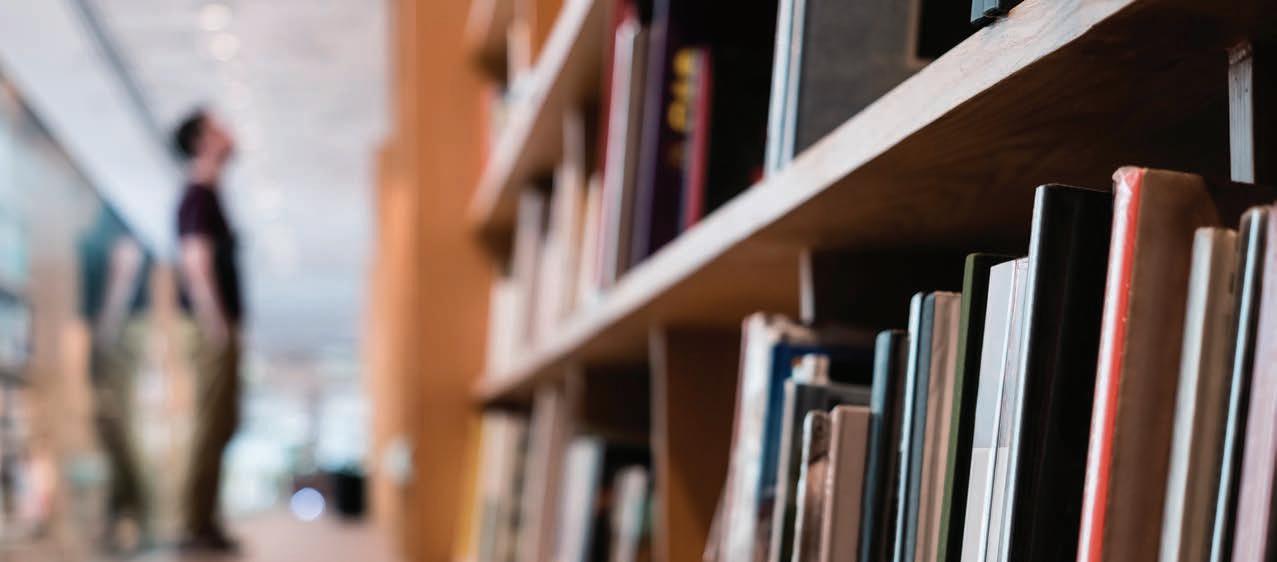FEATURE
Laugh Together, Learn Together Museums as Spaces for Well-Being By Alexandra Weaver, Visitor Experience Manager, and Chris O’Connor, Learning Program Developer
I
n a world that seems increasingly fragmented and isolated, where people crave authentic and meaningful interactions with each other but find it more and more challenging to create them, museums have a crucial role to play. Museums are thinking and feeling spaces, generally trusted spaces, and they provide opportunities for genuine collective experience. In the Learning department, as we are crafting ideas for programs, we are very mindful of the responsibility we have to create environments for people to come together and learn. We are exploring new ways of bringing well-being into our programming and connecting people with each other.
something larger than their typical visit to the museum. Abdul and Shawn are expert storytellers and hilarious comedians, and their performance is equal parts earnest and absurd.
Our spring program has two exciting new opportunities designed with mindfulness and well-being at the centre.
SENSORY-FRIENDLY PLAY The Royal BC Museum is proud to announce that we have partnered with the Canucks Autism Network and IMAX Victoria to offer a sensory-friendly experience for guests with neurodevelopment differences.
LAUGHTER IS THE BEST MEDICINE There is radical healing within just the simple act of coming together with a shared purpose, and laughter is a direct line to this kind of well-being. This past October we invited Abdul Aziz and Shawn O’Hara to perform their Fake Ghost Tours within our Becoming BC gallery. Over four nights, and to sold-out crowds totalling nearly 500 people, Abdul and Shawn took audiences around all the nooks and crannies of the gallery and invited them to imagine a different story of British Columbia, through real objects and less-than-real stories. Audiences were captivated and knew they were part of 12
What’s inSight
The groups laughed together and talked to each other (friends and strangers alike) about what stories they liked best. There was tangible joy shared, and a common response as people were leaving was “That made me feel good.” Sometimes museums and healing can be as simple and meaningful as that. You can join Abdul and Shawn again for Fake Ghost Tours: Gold Diggers, April 1, 3, 4 and 5.
In March 2018, the National Autism Spectrum Disorder Surveillance System released the most up-to-date Canadian prevalence rate: 1 in 66 Canadian children and youth (ages 5–17) are diagnosed with Autism Spectrum Disorder (ASD), making ASD one of the most common developmental differences. With all the lights, sounds and crowds, museums can be an overwhelming place for people with sensory sensitivities. The museum’s sensory-friendly program will aim to bring families together to learn


















